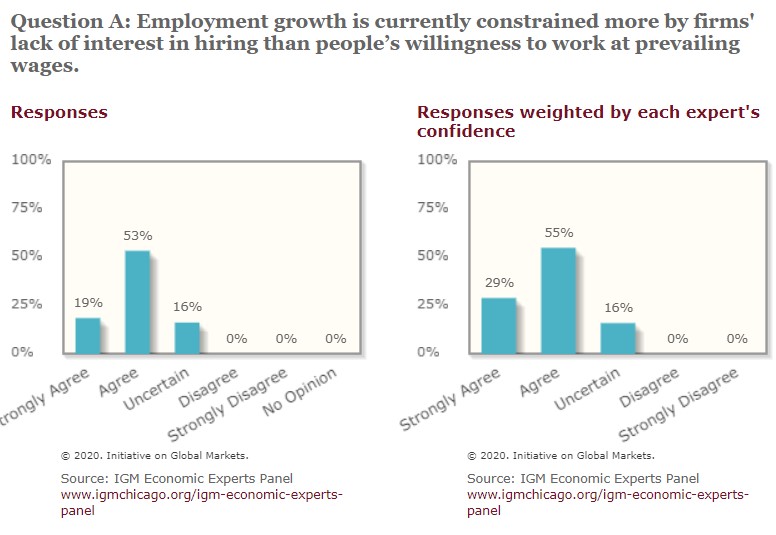The $600 supplement to unemployment benefits has allowed laid-off workers to pay rent and buy groceries, and has helped prop up the broader economy.
Now we are mere days away from it expiring -- even as economic conditions are deteriorating once again. https://www.nytimes.com/2020/07/21/business/economy/coronavirus-unemployment-benefits.html
Now we are mere days away from it expiring -- even as economic conditions are deteriorating once again. https://www.nytimes.com/2020/07/21/business/economy/coronavirus-unemployment-benefits.html
A key point here: Unemployment insurance and other forms of federal support are *working.* They certainly haven't prevented damage for either individual families or the overall economy. But there is no question things would look much worse today without the aid.
Various people have tried to quantify the impact. See for example this @ernietedeschi thread estimating that cutting off the money would shave 2 points off year-end GDP and reduce employment by 1.7 million. https://twitter.com/ernietedeschi/status/1283829018735910917
Some recent reporting from @jimtankersley @ESCochrane and others suggests the White House/congressional Republicans now want to reduce the extra benefits but not eliminate them entirely.
But note that unless they act *very* fast, benefits will almost certainly lapse temporarily.
But note that unless they act *very* fast, benefits will almost certainly lapse temporarily.
That brinkmanship has costs. I'm already hearing from recipients that they are pulling back spending ahead of the cutoff. And there are harder-to-quantify but no less real mental health effects of not knowing whether you'll be able to make rent next month.
As @D_W_Wilcox said: “We may think that the odds are that Congress will come to a reasonable conclusion. But for a person who is on the precipice of financial disaster, it’s v. low comfort to be told, ‘You know, I think there’s a 70% chance that this is going to work out fine.’”
The end of the benefits would be especially damaging for Black and Latino households, which have less wealth to fall back on (and who have already been disproportionately affected by the crisis).
See this recent paper from @p_ganong @nomadj1s et al:
https://www.nber.org/papers/w27552
See this recent paper from @p_ganong @nomadj1s et al:
https://www.nber.org/papers/w27552
As @WSpriggs told me: “When 30% of your population has no wealth, this has real implications... There isn’t a piggy bank. This is it. So when you cut their benefits, their drop in consumption is going to be huge.”
Note that many conservative economists have criticized the $600 bonus and think it should be scaled back. But almost none of them that I've spoken to think it would be wise to cut it off entirely at a time when unemployment is still 11.1% (and when the economy is backsliding).
See the latest IGM Forum survey of economists: 0% think willingness to work is the binding constraint right now.
http://www.igmchicago.org/surveys/jobs-and-unemployment-insurance/
http://www.igmchicago.org/surveys/jobs-and-unemployment-insurance/
One place conservative and progressive economists largely agree: the need to tie benefits to state-level economic conditions. That avoids a similar battle in 6 months if we're still in the same situation (while allowing for benefits to be scaled back if the situation improves).
(They disagree, of course, on how much benefits should be scaled back, what those triggers should be, etc. I don't want to overstate the degree of consensus here.)
By the way, the looming "cliff" shouldn't have snuck up on anyone. This story ran on the front page two months ago (and lots of others have written on the same themes). Waiting until the last minute here is a choice. https://www.nytimes.com/2020/05/28/business/economy/coronavirus-stimulus-unemployment.html

 Read on Twitter
Read on Twitter


